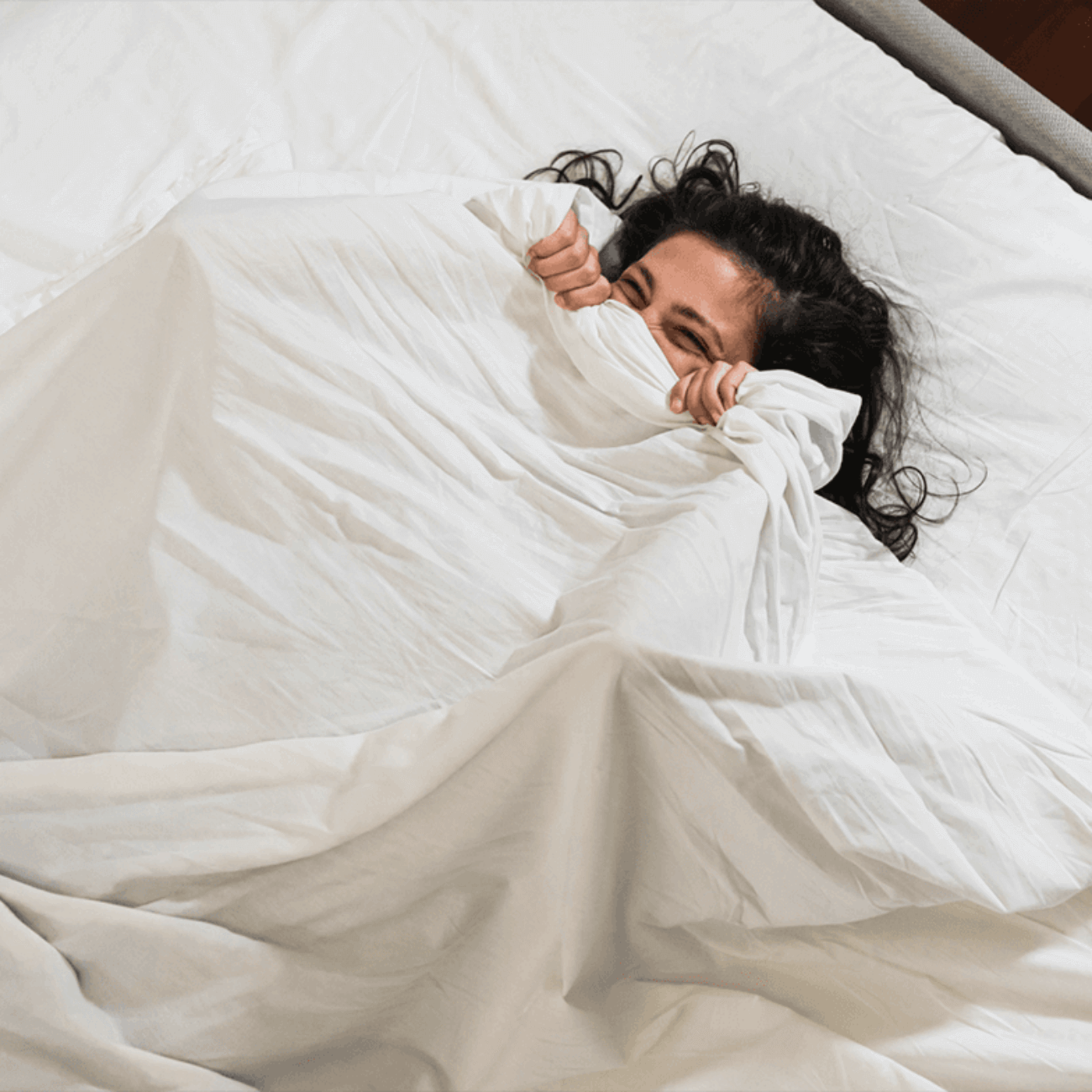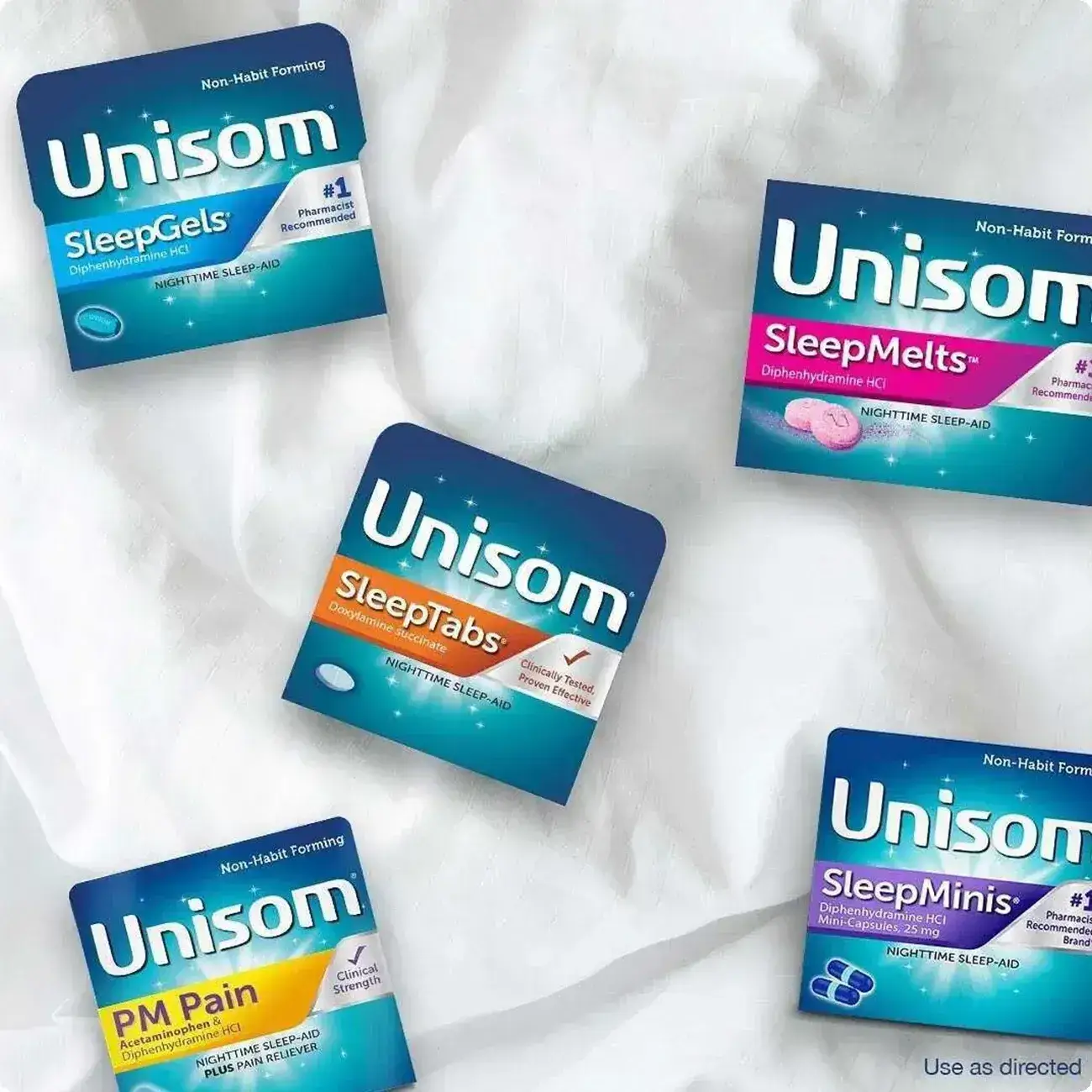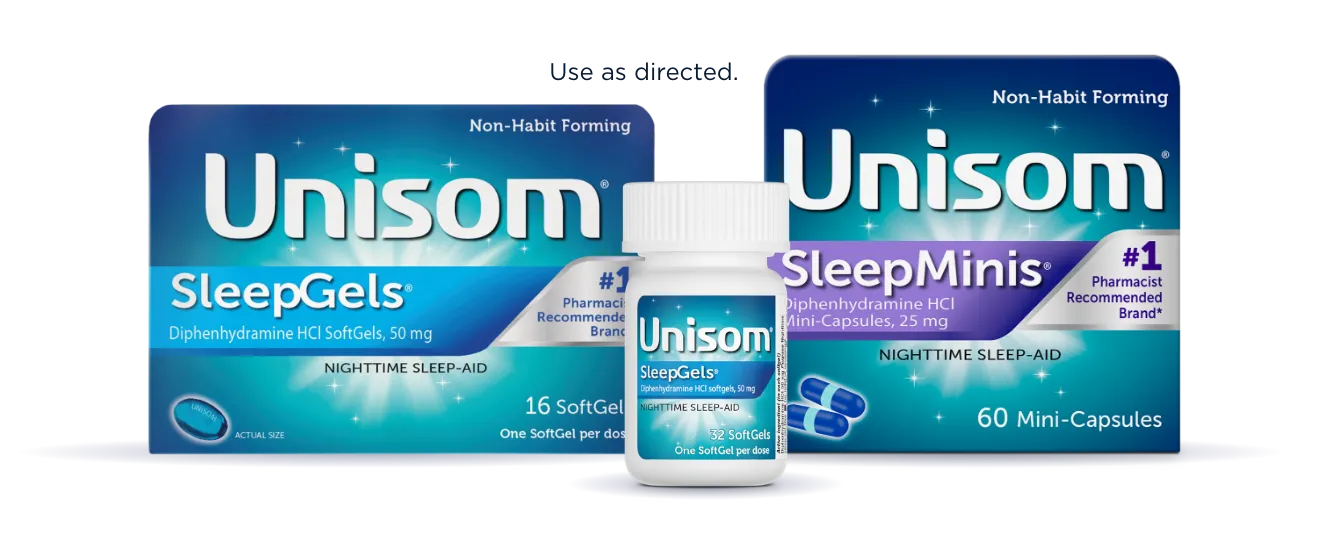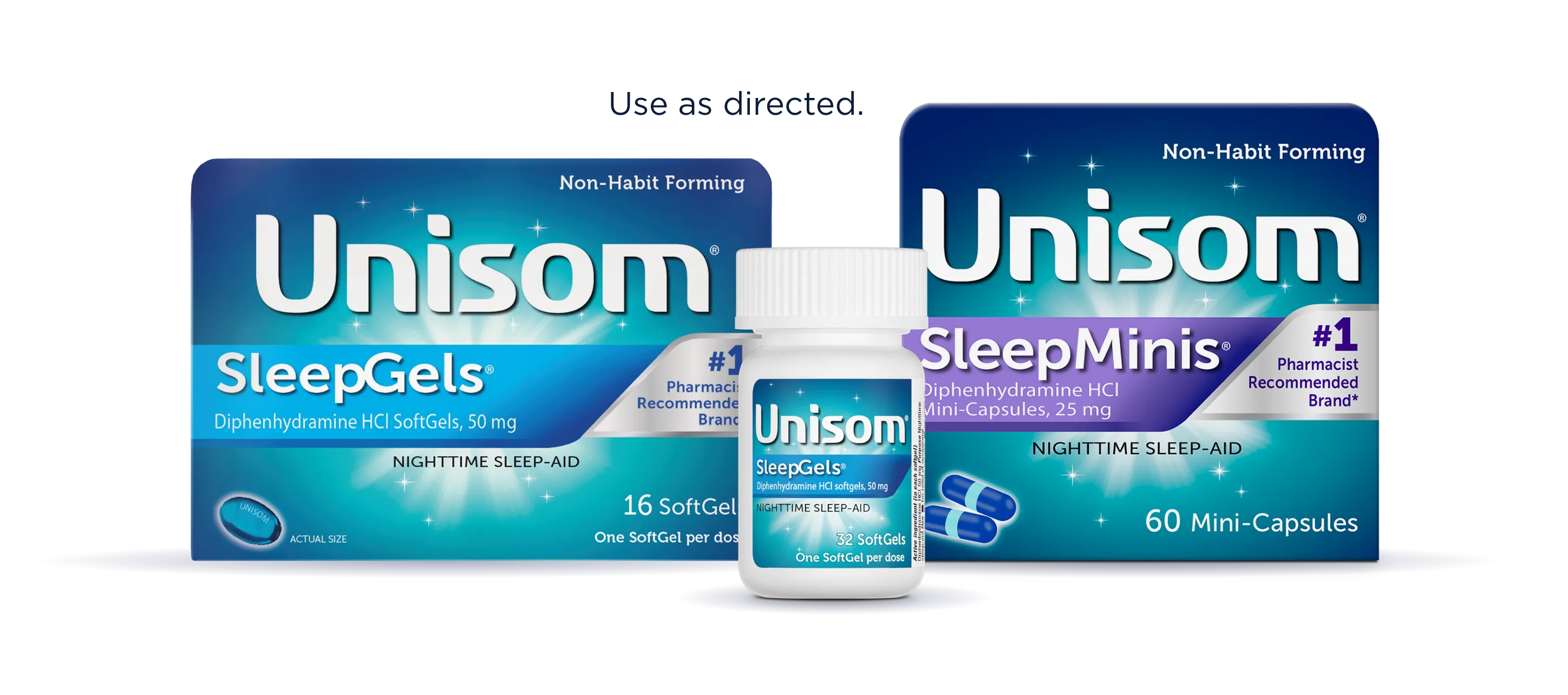We’ve all been there at some point or another: You know it’s time to hit the hay, but your mind and body just aren’t cooperating. Maybe lingering stress from your day is pent up, or to-do lists are racing through your head. Then there are the random thoughts incessantly sneaking their way onto your mental stage, rudely interrupting your goal of getting some shuteye. Whatever the cause, the situation is the same—you’re having trouble falling asleep.
Sleep issues are a common occurrence, with about 30% of adults encountering them occasionally and 10% struggling with them on an ongoing basis (a.k.a insomnia).1 Fortunately, there are things you can do to help catch some Zzzs like practicing good sleep hygiene—which involves tactics such as creating a regular sleep schedule, fostering a sleep oasis, and trying to eliminate or tamp down on common sleep disruptors.
You may also want to temporarily try sleep-aids to help get your sleep cycle back on track. But not all sleep-aids are the same. Some are medications (prescription or over-the-counter sleep-aids), while others are sleep supplements (such as natural sleep-aids). Ahead, find out what each type is, as well as how to know which one might work best for you.
What Are Sleep-Aids & Do They Work?
The term “sleep-aid” is a catchall referring to prescription drugs, over-the-counter medications, and dietary supplements that help you sleep. Within each category, there are ones that can help you fall asleep, stay asleep, wake refreshed, or all of the above. Across the board, the Centers for Disease Control (CDC) reports that usage of sleep-aids has been on the rise, with about 19% of adults having taken at least one sleep medication in the past month and around 20% using a natural sleep-aid in the past year.2
As for their efficacy, sleep-aids—including over-the-counter ones like Unisom®—do work. However, you should try to avoid viewing them as magic elixirs, since they’re meant to be short-term sleep-aid medication and sleep support supplements—and used in tandem with the proper sleep hygiene practices. If you find yourself using sleep-aids for more than two weeks, it’s best to speak about persistent sleep issues you’re having with your healthcare provider.
What Is Sleep Medication?
There are two types of sleep medication: prescription drugs and over-the-counter sleep medication.
Prescription drugs for sleep
In order for a drug to become a prescription medication for sleep, its safety and efficacy must be clinically reviewed and approved by the Food & Drug Administration (FDA). Then, it can only be prescribed by a licensed healthcare provider.
Prescribed medications to help sleep are classified based on their chemical composition and the way(s) in which they affect your brain. The active ingredients in prescription medication for sleep are as follows:
- “Orexin receptor antagonists” block a chemical called “orexin” that keeps you alert.
- “Z drugs” slow down your brain activity to cause a sedative effect.
- Similar to Z drugs, “benzodiazepines” provide a sedative effect by slowing brain activity.
- “Melatonin receptor antagonists” increase the level of the naturally-occurring sleep hormone melatonin in your body.
- Some antidepressants, which were originally used to treat depression, were also found to have a sedative effect. (However, despite various antidepressants prescribed “off-label”—i.e. for use beyond their FDA approval—only one antidepressant has been officially approved by the FDA as a medication for sleep, “doxepin.”)3
Over-the-counter sleep-aids
Over-the-counter medicinal sleep-aids must still meet safety and efficacy standards set by the FDA, but they do not require a prescription and can be purchased as needed at pharmacies and other retailers.
Active ingredients in over-the-counter sleep medication are antihistamines—which are commonly used to help relieve symptoms of allergies—since they have a sedative effect as well. For instance, Unisom® SleepGels®, SleepMelts®, and SleepMinis® all contain the histamine blocker diphenhydramine HCl. In addition to making you drowsy, blocking histamine production can help you fall asleep faster and stay asleep. Sometimes, another active ingredient, like acetaminophen, is combined with an antihistamine to help relieve minor pain or discomfort that may be contributing to your sleep difficulties, such as in Unisom PM Pain.
Another antihistamine, doxylamine succinate (a clinical-strength histamine blocker that works in a similar fashion to diphenhydramine) is also an active ingredient in sleep-aids, such as in Unisom® SleepTabs®. These SleepTabs® can help you fall asleep 33% faster and sleep through the night.
What Are Sleep Supplements?
Supplements for sleep available on the market today vary widely in the amount of research and validation that goes into their development, and their claims are not required to be evaluated by the FDA. They may contain a single ingredient or a blend, which means that supplements to help you sleep are very diverse in their formulation and efficacy.
However, as the #1 doctor- and pharmacist-recommended sleep-aid brand, our Unisom Simple Slumbers® contain a proprietary blend of melatonin, vitamin B6, passion flower, and lemon balm—the latter two of which are believed to help soothe and calm your mind to promote sleep.† This new, 100% drug-free formula uses melatonin, which works with your body’s sleep cycle to help improve the quality of your sleep—naturally.†
What Is the Best Sleep-Aid for Me?
Just as no two people’s dreams are the same, there’s not a one-size-fits-all solution for sleep troubles. Whether it’s a drug prescribed by your doctor, over-the-counter sleep medication, or supplement for sleep, your best option will depend on a number of factors. These include the cause of your sleep issues, as well as your age, overall health, and any other medications or supplements you may be taking. When in doubt, it’s always best to speak with your healthcare provider about what may be the most effective sleep-aid for your unique situation.
Rest Assured
Having trouble sleeping can be a truly frustrating experience. And knowing which way to turn for help can easily become overwhelming. Fortunately, rest assured, there are options available to you. As the #1 pharmacist- and doctor-recommended OTC sleep-aid brand, you can count on Unisom to help you fall asleep faster and wake up feeling refreshed.
Find the Unisom product that’s right for you and download the Unisom Sleep Diary.
|
† These statements have not been evaluated by the Food and Drug Administration. This product is not intended to diagnose, treat, cure or prevent any disease. |
This article is not a substitute for medical advice. Unisom is only intended to help with occasional sleeplessness. If you are suffering from ongoing sleep concerns, seek the help of a medical professional. Professional References
Professional References
1. American Sleep Association. “Sleep & Sleep Disorder Statistics”. 2022.
2. Sleep Foundation. “Sleep Aids to Treat Insomnia.” 2022.
3. Wichniak A, Wierzbicka A, Walęcka M, Jernajczyk W. “Effects of Antidepressants on Sleep”. Curr Psychiatry Rep. 2017;19(9):63. Published 2017 Aug 9. doi:10.1007/s11920-017-0816-4
Related Articles
†These statements have not been evaluated by the Food and Drug Administration. This product is not intended to diagnose, treat, cure or prevent any disease.

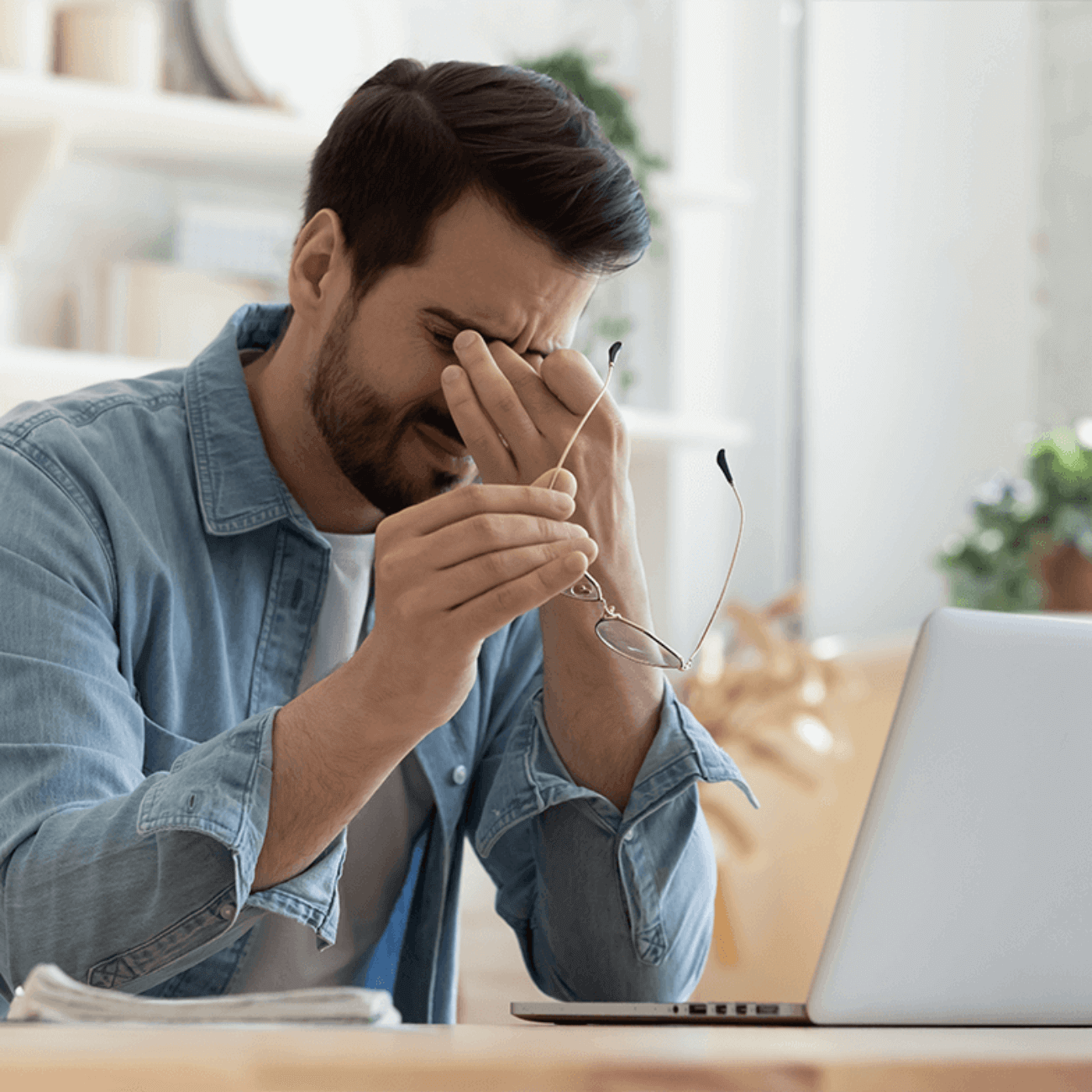

.png 400w,/.imaging/webp/sanofi-chc/img-w500/dam/unisom/sleep-hub/falling-asleep/stop-losing-sleep/9dxo16k8TQxxK3J0.png/jcr:content/9dxo16k8TQxxK3J0%20(1).png 500w,/.imaging/webp/sanofi-chc/img-w600/dam/unisom/sleep-hub/falling-asleep/stop-losing-sleep/9dxo16k8TQxxK3J0.png/jcr:content/9dxo16k8TQxxK3J0%20(1).png 600w,/.imaging/webp/sanofi-chc/img-w700/dam/unisom/sleep-hub/falling-asleep/stop-losing-sleep/9dxo16k8TQxxK3J0.png/jcr:content/9dxo16k8TQxxK3J0%20(1).png 700w,/.imaging/webp/sanofi-chc/img-w800/dam/unisom/sleep-hub/falling-asleep/stop-losing-sleep/9dxo16k8TQxxK3J0.png/jcr:content/9dxo16k8TQxxK3J0%20(1).png 800w,/.imaging/webp/sanofi-chc/img-w900/dam/unisom/sleep-hub/falling-asleep/stop-losing-sleep/9dxo16k8TQxxK3J0.png/jcr:content/9dxo16k8TQxxK3J0%20(1).png 900w,/.imaging/webp/sanofi-chc/img-w1200/dam/unisom/sleep-hub/falling-asleep/stop-losing-sleep/9dxo16k8TQxxK3J0.png/jcr:content/9dxo16k8TQxxK3J0%20(1).png 1200w)

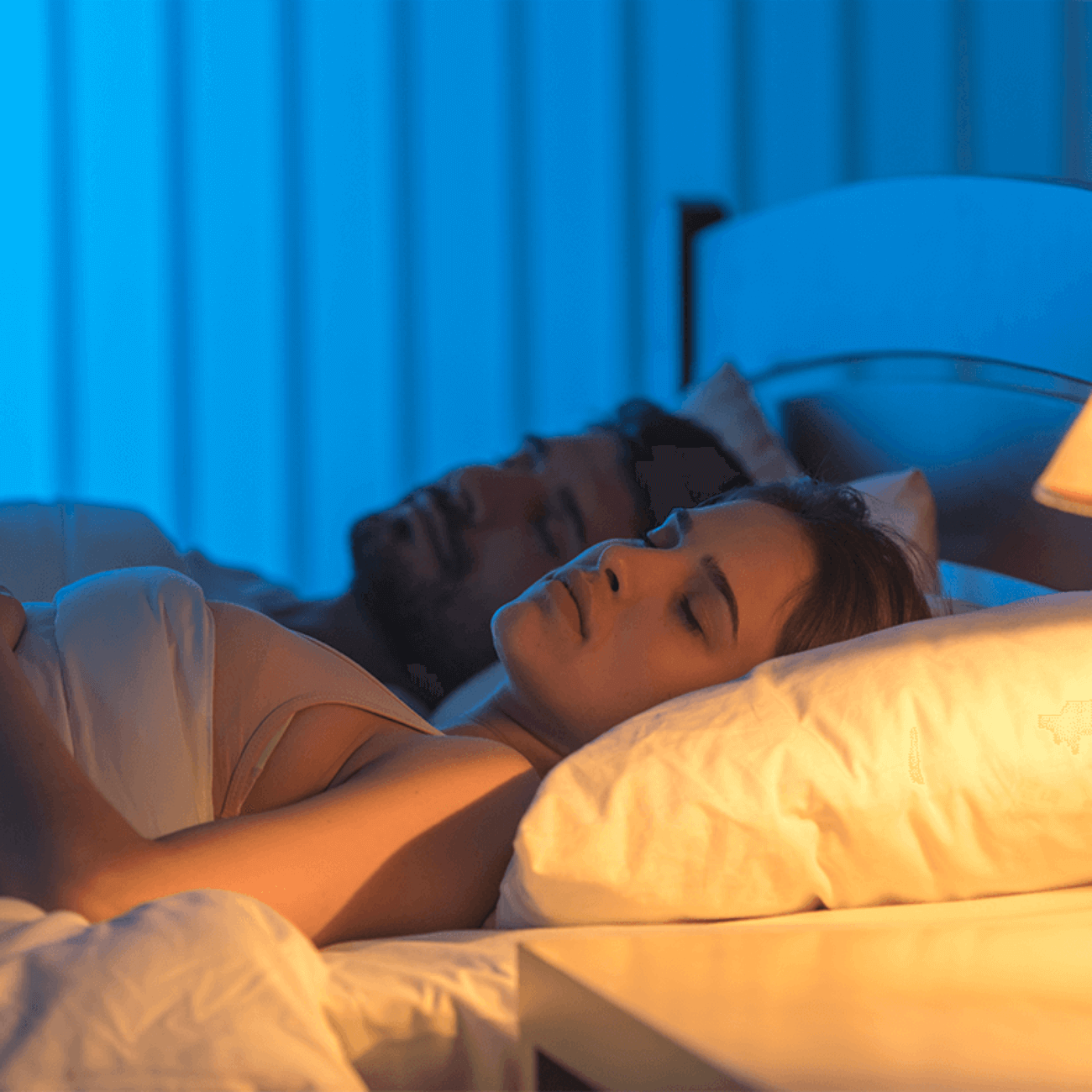
.webp)
